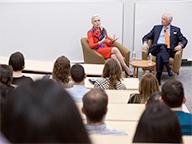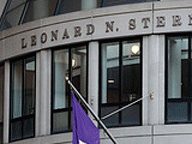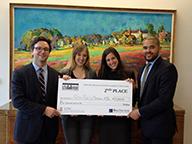Student Club Events
—
Fourth Annual Strategy Forum
—

The Strategy and Operations Club and the Management Consulting Association will co-host the Fourth Annual Strategy Forum, themed “Big Data | Big Results,” on February 27th, 2014.
Student Club Events
—

The Strategy and Operations Club and the Management Consulting Association will co-host the Fourth Annual Strategy Forum, themed “Big Data | Big Results,” on February 27th, 2014.




















